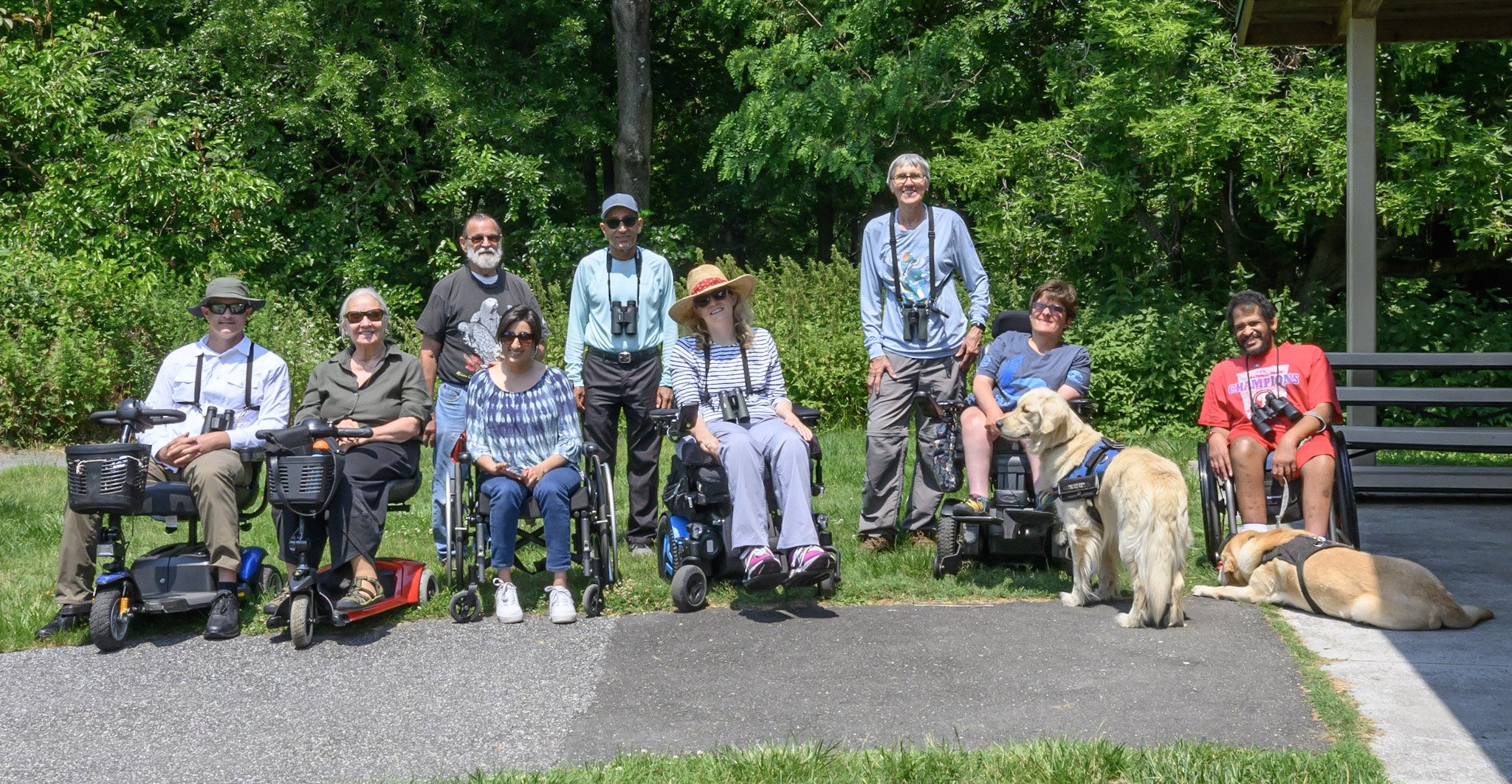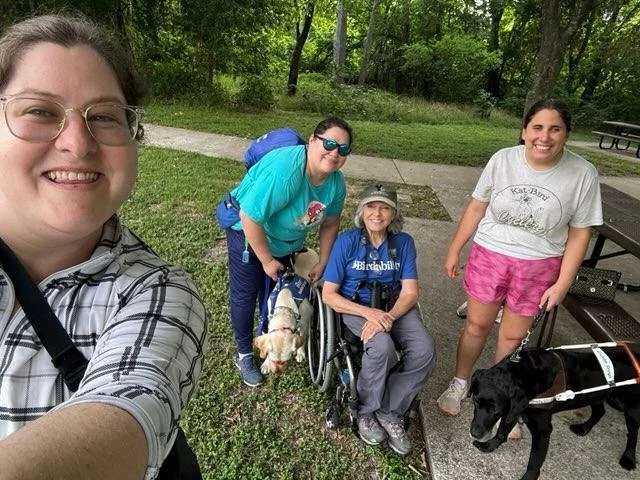Service Dogs and Accessible Birding
Image of service dog on trail courtesy of Andy Luo, Unsplash
September is National Guide Dog Month, a time to recognize the extraordinary partnership between service dogs and their handlers. These highly trained animals are not pets; they are essential working partners who perform critical tasks that support independence, safety, and access for people with disabilities.
Birding is for every body and every mind, and that means ensuring our outings and events are welcoming to all participants, including those accompanied by service dogs. To help, we’ve created a new resource: Considerations for Incorporating Service Dogs into Accessible Bird Outings. This guide offers practical information for event organizers, volunteers, and birders alike. It explains the role of service dogs and shares strategies to minimize conflict while respecting wildlife and habitat.
Birdability Captain, Diane Allison, leads a group from the Pennsylvania Center for Adaptive Sports on an outing to John Heinz NWR in Philadelphia
But perhaps most importantly, this new resource emphasizes how we can all interact appropriately with service dogs. Here are a few highlights:
Never touch, talk to, or feed a service dog without the handler’s permission. Their focus must remain on the tasks that keep their handler safe.
If a service dog tries to get your attention, pay attention. Their handler may need urgent assistance.
It is never appropriate to ask why someone uses a service dog or to offer unsolicited advice.
Business owners and event staff may only ask what tasks a service dog is trained to perform, not about a handler’s disability.
Service dogs are protected under the ADA, regardless of whether they wear a vest or have documentation. Access should not be denied.
Birders often prefer outings without pets because of their potential impact on wildlife, but service dogs are extensively trained to remain calm and focused, making them highly unlikely to disrupt birds.
Birdability Founder, Virginia Rose, with two blind birders and their guide dogs, and a birder who is taking a selfie of all of them during the Blind Birder Bird-a-Thon in Austin, TX in May 2025
We hope this new document complements the work we’ll be highlighting during Birdability Week in October, including the Blind Birder Bird-a-Thon Panel where blind and low vision birders will share their experiences, perspectives, and joys of birding - sometimes with the support of guide dogs and other access tools.
Building access and inclusion is a collective effort. We invite you to read the full resource, reflect on how you interact with service dogs, and share your own tips and considerations with us. By growing our shared understanding and our muscles around disability inclusion, we can ensure that birding is truly for every body.
We’d love to include your thoughts about how you feel most supported as a person who birds with a service dog. Please share your experiences and any information you’d like us to include in the next draft of this document using this form. And as always, we hope that you will tell us how we can continue to support you and your work around access and inclusion by sharing your feedback with us on the impact our work has had or how we could do better! https://forms.gle/hTAcV9aAHPAvDkga6



